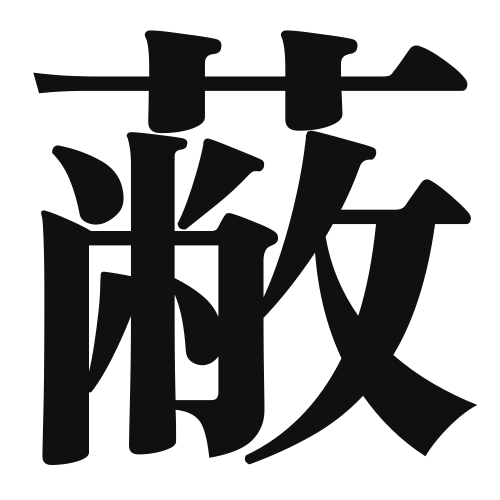1. Overview of Meaning
The kanji “蔽” (pronounced “hei” in Japanese) means to cover, conceal, or obscure something. It conveys the idea of something being hidden or shielded from view.
2. Formation and Radical
Formation of the Kanji: The kanji “蔽” is a compound character, which means it is formed by combining different elements. It consists of the “艹” (grass) radical, which often relates to plants or nature, and the phonetic component “弊,” which contributes to its pronunciation and meaning.
Radical: The radical of “蔽” is “艹,” indicating its connection to vegetation or natural elements.
3. Examples of Usage
Common Words and Phrases: Some common words that include “蔽” are “蔽い” (obscuration) and “蔽う” (to cover or conceal).
Example Sentences in Daily Conversation:
- 「彼は真実を蔽っている。」(He is concealing the truth.)
- 「この霧が山を蔽っている。」(This fog is covering the mountain.)
4. Synonyms and Antonyms
Similar Kanji: A similar kanji is “隠” (in), which also means to hide or conceal, but it often implies a more intentional act of hiding something.
Antonyms: An antonym of “蔽” is “露” (ro), which means to expose or reveal, indicating the opposite action of covering or concealing.
5. Cultural and Historical Background
Connection to Japanese Culture: The concept of “蔽” can be seen in various aspects of Japanese culture, where nature often plays a significant role in art and literature, symbolizing the beauty of what is hidden.
Proverbs and Idioms: One relevant proverb is “隠れているものは、いつか明らかになる” (What is hidden will eventually be revealed), which reflects the idea that concealment is temporary.
